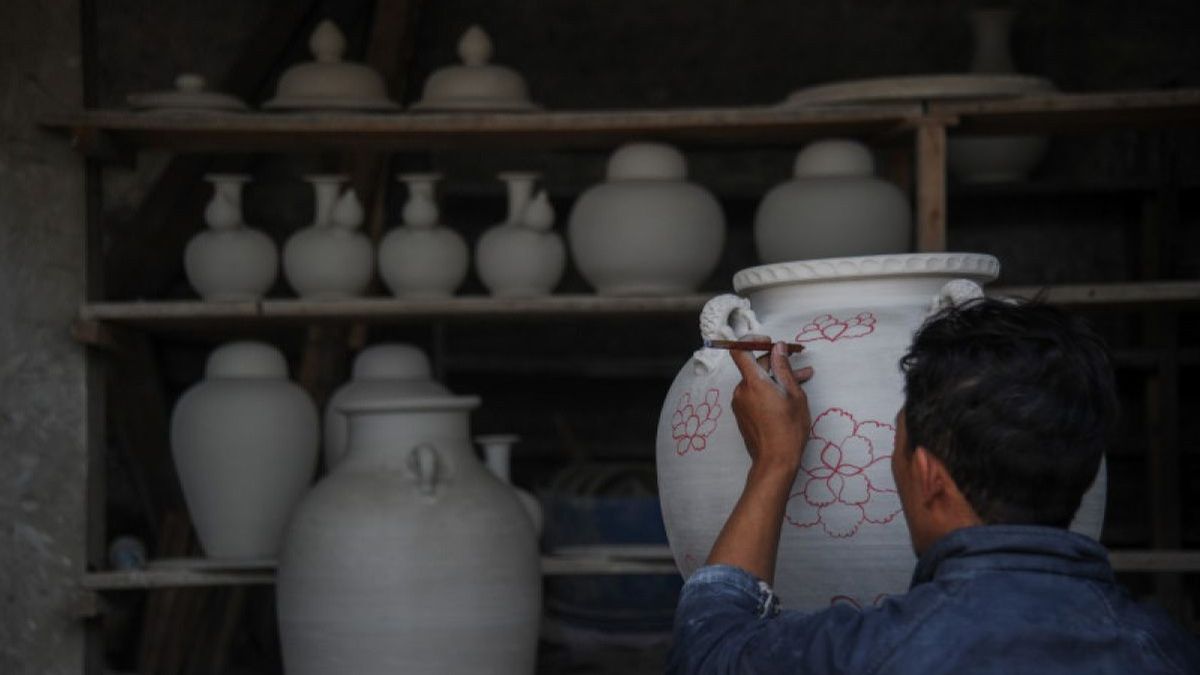JAKARTA - The Association of Indonesian Ceramic Industry (Asaki) stated that the Anti-Dumping Import Duty (BMAD) policy for imported ceramics must be fully supported because it is an instrument of protection for the domestic industry, which is also in accordance with the regulations of the World Trade Organization (WTO).
Chairman of Asaki Edy Suyanto said that his party felt that there were certain groups who did not like the national ceramic industry to be good hosts in their own country.
Edy said that the national ceramic industry can still meet domestic needs, both in terms of production volume and type/type of Homogeneous Tile (HT) ceramics, all of which can be met by national ceramic producers.
He added that even today the ceramic industry still has an idle capacity of 60 percent or around 80-90 million square meters for HT ceramics, which is the majority of imported ceramics from China.
According to him, the ceramic industry has such a large idle capacity because of the practice of unfair trade, aka dumping and predatory pricing, which is detrimental to domestic ceramic producers.
"It is unfortunate that there was a deficit of 1.5 billion US dollars during 2019-2023 just because import ceramics should not have happened because we were actually able to produce. However, due to the dumping practice, the government and the people are clearly disadvantaged," said Edy in his official statement, Tuesday, July 16.
Furthermore, Edy said, what is the concern of his party at this time is the massive import of ceramics.
This is because tens of millions of square meters of ceramics will enter within the next one month as an anticipatory measure for importers to wait for the BMAD to be implemented.
Asaki also reiterated that not only the national ceramic industry has suffered losses, but domestic consumers have also suffered losses so far.
"Which is only treated to dumping/presidential pricing prices with cheap quality from imported products because there is a quality reduction. One example is the decrease in ceramic thickness, which was previously 1 cm to 7 mm. This certainly affects the strength of the ceramics itself, namely, the bending and breaking strength decreased," said Edy.
SEE ALSO:
The chairman of Asaki also gave an example of developed countries such as the United States, the European Union and the Middle East having done the same with ceramic products from China to protect the domestic ceramic industry.
As a result, until now there has been no objection or demand back by China to the WTO because the dumping practice is proven.
"Why do they do dumping practices? Because of overcapacity and supply, which the Chinese ceramic industry has a production capacity of around 11-12 billion square meters and currently runs with utilization of around 50-55 percent," he said.
The English, Chinese, Japanese, Arabic, and French versions are automatically generated by the AI. So there may still be inaccuracies in translating, please always see Indonesian as our main language. (system supported by DigitalSiber.id)
















